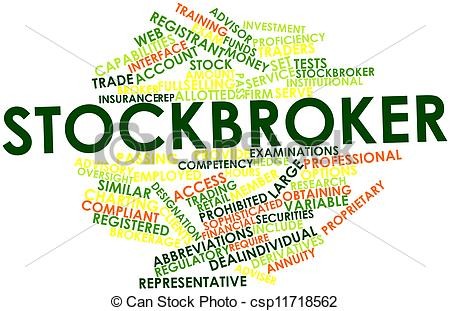How to choose a stock broker
Post on: 27 Май, 2015 No Comment

Choosing a stock broker can be more complicated than it sounds. The right broker can open up your investing opportunities, but the wrong one can limit your options and push up your costs.
Theres a lot of information about different companies on this site and it can be hard to pull together when youre trying to pick one. So in this article, Im going to look at 10 tips to bear in mind when choosing a stock broker.
1. Decide where you want to invest
If you only plan to invest in shares listed in your local stock market, then in most countries youll have plenty of brokers to choose from. If you want to invest in some foreign markets, you may have very limited options. Check the international stock broker guide to see which firms will trade which markets.
You can have accounts with more than one stock broker and many investors do. But its often convenient to try to get two or three comprehensive accounts covering most of your investments, rather than having to open a new account every time you want to buy a stock listed in a different country.
2. Check costs carefully
Many investors focus myopically on dealing commissions. But stock brokers levy a wide range of costs and some will promise low headline dealing rates, only to claw it all back through high currency conversion costs or excessive account management fees.
Read the guide to how stock brokers charge and compare costs in the detailed stock broker comparison tables for the UK. the US. Hong Kong or Singapore. Try to get a feel what it will cost you to run your portfolio over a year, rather than just the price per trade.
3. Decide what you want from your stock broker
Stock brokers fall into three types. Execution-only or discount brokers simply carry out your trading instructions, either online or by phone. Most of the stock brokers listed on this site are execution-only brokers.
Advisory or full service brokers will discuss your portfolio and investment ideas with you. You make the final decision, but they will offer you advice. And some advisory brokers also offer discretionary services for clients with large portfolios, where they will manage your money for you.
Advisory services obvious cost more, but some investors appreciate the extra support and insight their broker can offer. Getting the best from an advisory stock broker involves finding one that you have a good relationship with and can trust their advice. That isnt always easy.
As part of this, you also need to think about how you plan to invest. Frequent traders will requires high-speed online access and low commissions, while infrequent investors may be happy to deal by telephone and be less concerned about costs.
That said, while services aimed at long-term investors will never be suitable for traders, the opposite is not always true. There are plenty of companies that market themselves to frequent traders, but will still be a good and cheap service for those who trade infrequently. So dont be put off by the advertising.
4. Understand how your stock broker works
This point is a bit more technical, but it can be helpful in picking the best firm.
Different stock brokers deal in different markets in different ways, especially when it comes to international stocks. A few offer direct market access. meaning that your order is sent directly to the exchange.
More commonly, they trade through a market maker a company that is always ready to both buy and sell a stock and constantly quotes a price to do either. Market makers only trade with institutions and stock brokers, not directly with the public.
Depending on how your brokers firm is set up, this could involve it trading directly with the market maker. Or it could mean that they trade through another local stock broker who trades with the market maker. The market maker they work with might be in the country youre trading or it might be elsewhere for example, there are market makers based in London that will buy and sell American stocks with UK-based brokers without the trade ever going anywhere near New York.
As a regular investor, you probably dont not care much about how it all works behind the scenes. And unless you need very fast trading and the absolute best price possible, it often doesnt make a huge difference to you.
But obviously, the more intermediaries an order has to go through, the more the costs can mount up. So if youre going to be trading frequently in a particular market as opposed to once in a while you probably want a stock broker who goes through fewer links rather than more.
5. Be cynical about the bells and whistles
Some stock brokers provide a barebones services, offering trading services and nothing else. Others will send you regular research notes or have websites full of company fundamental data. Many include free streaming price data and some offer Level 2 data. usually at an extra fee.
Some of this information can be very useful. However, much of it will be irrelevant to many investors the long-term investor doesnt really need live Level 2 prices, for example. And you may well be able to get the same information either better or at lower cost through a separate provider.
Think carefully about whether all the extras a stock broker promises are really worth much to you. You may be better off with youd be better off with a simpler, cheaper firm and subscribing to the one or two things you need separately.
6. All-on-one is not always the answer
This website is mostly focused on share dealing and in particular international share dealing. But many firms offer a wide range of other investment and trading services, such as a fund supermarket, contracts for difference (CFDs), foreign exchange trading, spreadbetting and so on.
It can be handy to have everything in one account but be clear on what youre getting. In many cases, some the services a broker promises are white label products ie they are provided by a third party under the stock brokers name.
That means you will often be paying two sets of fees one to your stock broker and one to the white label provider. If you want these services, you will often do a better deal by choosing your stock broker solely for its sharedealing and getting your spreadbetting or forex trading account direct from the white label provider or another specialist.
7. Look for a flexible, convenient service
At the same time, look for flexibility and range in the specific services that matter to you. If youre looking for a stockbroker, consider whether the broker offers tax-advantaged accounts, such as ISAs and SIPPs in the UK. Minimising tax can make a big difference to your investment returns, especially for higher rate taxpayers.
For international investing, a multi-currency account which allows you to hold cash in several different currencies is a must and should be provided without any extra charges. Most stock brokers charge commission every time you convert from sterling to foreign currency and back again, so you want to minimise how often you do so.
And see if theyll allow you to transfer in money thats already in the foreign currency you want to use. Transferring in money from a foreign currency bank account or using a foreign exchange specialist to do the conversion instead of letting your stock broker do it could save you quite a bit in commissions.
8. Make sure you like the service

Regardless of how good a firm looks on paper, that counts for little if the online trading platform is slow and buggy, the telephones are always engaged or the customer service staff are unhelpful.
I have dealt with a number of big-name firms whose guiding principles seem to be inflexibility, arrogance and incompetence. Perhaps I was just unlucky, but Ive heard similar stories from other users of the same companies.
With some of the leading stock brokers. Im amazed how they manage to hang on to clients. Do not assume that being well-known and widely advertised means the company is any good.
I recommend asking other investors for recommendations and searching online for opinions and reviews. However, remember that unsuccessful traders have a tendency to blame everyone else for their mistake, so always assess how credible a review is.
Bad reviews are always likely to outnumber good ones, because people are more motivated to review something thats gone badly. But if every review is awful and everyone is grumbling about the same problems, that may be a warning.
There seems to be little connection between cost and service. Some of the ultra-low cost providers offer outstanding service, while some relatively expensive ones are shambolic.
9. Dont let them upsell you
Remember that a stock brokers business depends on how much commission and fees it generates. So they may try to encourage you to trade more often or sell you services and products you dont need.
If you have a personal advisory broker or representative, their income is sometimes tied to the commission they generate. That doesnt mean that all of them will advise you to trade too much to benefit them but bad ones will. Dont allow yourself to be pushed into something you dont want.
10. Stay safe
Make sure you only do business with reputable firms and understand how investor protection rules and compensation schemes will and will not protect you if the worst happens.
This website has several articles on opening foreign brokerage accounts, which I believe is a sensible step for some experienced investors. But you should always be careful and only make use of well-regulated firms. Never place your money with some dubious outfit that nobody has ever heard of based in a country that has no rules to protect investors.
And this isnt just true when investing abroad it applies at home as well. Only use companies that are fully regulated under your local securities law. And if someone cold-calls you try to sell you shares, put the phone down and report them to the regulator.
And finally make sure you shop around
All this said, the single most important thing you can do is shop around and compared brokers. Never just go with the first stock broker you look at.
When you have a shortlist of firms, consider signing up to more than one. Its impossible to decide whether a brokers service is really going to suit you until youve used it for a while.
Remember, theres no problem keeping several accounts. Since different firms tend to be better in different niches, thats often the smart way to go.














